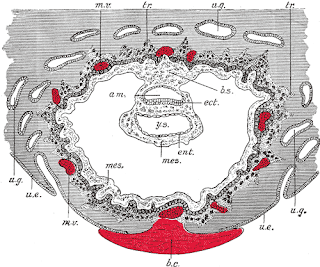Gastric Cancer Studies on Everyday Foods
This is hiding away on a hard drive doing nothing so may as well be out in the public domain, written nearly 4 years ago.
Cancer studies on foods.
These are a few self-help ideas for anti-cancer foods with studies so anyone reading can decide if it’s part of a possible dinner plan as food is good back up for all treatments.
If not on blood thinners you can try bromelain which comes from pineapple, it has strong anti-cancer activity in the pill form or simply as freshly squeezed pineapple so is worth knowing about.
Bromelain cleaves a molecule called CD44 from cancer cells so they cannot spread, it is a digestive enzyme so best with protein foods.
Due to the effect on bleeding, asking the doctor if it can be used in pill form is a must, it has good effects on speeding up wound healing once the wound is past the early stages and scar tissue has formed but never to be taken near surgery.
If you can’t use Bromelain in pill form it is in pineapples so juice pineapples.
The highest level of bromelain is in the stems so juicing the whole pineapple is best.
That should be a safe way to use it, if fibre is a problem strain any bits.
Be aware that pineapple juice may thin the blood too.
Use bromelain just before meals for aiding the breakdown of protein is the best time and perhaps once a day first to gauge any possible side effects.
One 500mg of Bromelain each meal 3 times a day is a normal dosage
"Our findings collectively indicate that bromelain exerts cytotoxic effects in a panel of human gastric and colon carcinoma cells."
Cytotoxic effects of bromelain in human gastrointestinal carcinoma cell lines
https://www.ncbi.nlm.nih.gov/pmc/articles/PMC3633552/
This is a study that found bromelain and N-acetylcysteine made chemotherapy work better.
Potentiation of chemotherapeutics by bromelain and N-acetylcysteine: sequential and combination therapy of gastrointestinal cancer cells
https://www.ncbi.nlm.nih.gov/pmc/articles/PMC4859666/
This is a study that found bromelain and N-acetylcysteine work alone to inhibit gastro cancer cells.
Bromelain and N-acetylcysteine inhibit proliferation and survival of gastrointestinal cancer cells in vitro: significance of combination therapy
https://www.ncbi.nlm.nih.gov/pmc/articles/PMC4245783/
Turmeric works but that is a blood thinner too so maybe not at the same time as bromelain or pineapple, use them at different times of the day or on different days, turmeric can just be in a meal with one level teaspoon, smoothies etc.
“Curcumin, a major phytochemical in turmeric, inhibits the proliferation of many types of solid cancer cells”
Curcumin suppresses the proliferation of gastric cancer cells by downregulating H19
https://www.ncbi.nlm.nih.gov/pmc/articles/PMC5228417/
Green tea has good anti-cancer effects, green tea extract may be a good option too as it has higher levels of ECGC which is the main anti-cancer component in green tea.
If trying green tea the things to be aware of is it can lower iron absorption as does normal black tea and both types of tea have extra levels of fluoride so can interfere with the thyroid gland by binding to iodine.
1 to 2 cups a day may be enough.
Cancer preventive and therapeutic effects of EGCG, the major polyphenol in green tea
https://www.sciencedirect.com/science/article/pii/S2314808X1730533X
Inhibition of tumour invasion and angiogenesis by epigallocatechin gallate (EGCG), a major component of green tea
https://www.ncbi.nlm.nih.gov/pmc/articles/PMC2517785/
Papaya leaves can be used as a tea, 1 to 2 teaspoons in tea a day, goes better with peppermint for taste and perhaps rosemary.
Papaya leaf also helps to make our blood platelets so papaya leaf helps to stop bleeding and is one of the best herbs for dengue fever.
A visit to a naturopath should be recommended for advice on papaya leaf use and it may be best to use after any chemotherapy in case of side effects.
Aqueous extract of Carica papaya leaves exhibits anti-tumor activity and immunomodulatory effects
https://www.ncbi.nlm.nih.gov/pubmed/19961915
The useful thing to know about papaya leaf is it raises white blood cells and platelets and can restore immune function after chemotherapy.
Papaya leaf also helps to turn the immune system against cancer cells.
"Papaya has a dramatic anticancer effect against a broad range of lab-grown tumours, including cancers of the cervix, breast, liver, lung and pancreas," he said.
"Papaya leaf extract boosts the production of key signalling molecules called Th1-type cytokines."
"This regulation of the immune system, in addition to papaya's direct anti tumour effect on various cancers, suggests possible therapeutic strategies that use the immune system to fight cancers."
Dr Dang said researchers found no side effects to taking papaya leaf as a treatment in their tests.
"The papaya extract did not have any toxic effects on normal cells, avoiding a common and devastating consequence of many cancer therapy regimens," he said.
Papaya helps fight cancer, find scientists
Pawpaw itself has anticancer properties and is a digestive enzyme like pineapples.
Moderate garlic use helps, bit of a blood thinner too.
“Garlic (Allium sativum), a member of the family Liliaceae, contains an abundance of chemical compounds that have been shown to possess beneficial effects to protect against several diseases, including cancer. Evidence supports the protective effects of garlic in stomach, colorectal, breast cancer in humans. The protective effects appear to be related to the presence of organosulfur compounds, predominantly allyl derivatives, which also have been shown to inhibit carcinogenesis in forestomach, esophagus, colon, mammary gland and lung of experimental animals.”
Organosulfur compounds and possible mechanism of garlic in cancer
https://www.ncbi.nlm.nih.gov/pmc/articles/PMC3731019/
Cancer Chemoprevention by Garlic and Garlic-Containing Sulfur and Selenium Compounds
https://academic.oup.com/jn/article/136/3/864S/4664422#110998863
Broccoli, cabbage, cauliflowers and Brussel sprouts are all highly recommended in the diet if fibre is possible to eat.
"Studies indicate that diets rich in cabbage, broccoli, and cauliflower offer cancer preventative and therapeutic benefits. Recent experimental studies have confirmed these findings and demonstrated that isothiocyanate, sulforaphane, and the polyphenol, quercetin, effectively reduced tumor growth and enhanced the sensitivity of the cancer cells to current chemotherapeutics"
Pilot study evaluating broccoli sprouts in advanced pancreatic cancer.
https://www.ncbi.nlm.nih.gov/pmc/articles/PMC4059031/
Tomatoes and tomato paste is fine as well as garlic as tomatoes have high levels of lycopene.
Anticancer Effect of Lycopene in Gastric Carcinogenesis
https://www.ncbi.nlm.nih.gov/pmc/articles/PMC4492364/
“Consumption of tomato has been associated with reduced risk of several types of human cancer.”
Beetroot is useful as it helps red blood cells and detoxes the liver.
The purple colours called anthocyanins from beetroot and grapes are anti-cancer compounds, the oxalic acid in beetroot stops cancer cells from getting energy.
As long as someone doesn’t have kidneys stones or bone problems from high oxalic acid then beetroot is a good additive to juices.
Beetroot adds nitrogen for the immune system and arterial health but also has choline which the liver uses to stay healthy, good when using chemotherapy.
The Potential Benefits of Red Beetroot Supplementation in Health and Disease
https://www.ncbi.nlm.nih.gov/pmc/articles/PMC4425174/
Potential Effects of Pomegranate Polyphenols in Cancer Prevention and Therapy
https://www.hindawi.com/journals/omcl/2015/938475/
Cherries or cherry juice are especially good at night for melatonin to sleep.
Tart Cherry Anthocyanins Inhibit Tumor Development in Apc(Min) Mice and Reduce Proliferation of Human Colon Cancer Cells
Protective Role of Dietary Berries in Cancer
https://www.ncbi.nlm.nih.gov/pmc/articles/PMC5187535/
Anticancer and Cancer Chemopreventive Potential of Grape Seed Extract and Other Grape-Based Products
https://www.ncbi.nlm.nih.gov/pmc/articles/PMC2728696
These berries all have resveratrol, the skin of grapes, blueberries, raspberries, mulberries
Resveratrol: A potential challenger against gastric cancer
https://www.ncbi.nlm.nih.gov/pmc/articles/PMC4588085/
It is well worth either juicing celery with beetroot for the liver, or chewing a celery stick in the morning or day as celery helps to lower uric acid.
You chew the celery and spit out the bits.
Lemons and citric fruits also lower uric acid.
Lemons aid digestion so are best before meals, the potassium citrate and vitamin C content lowers uric acid, the vitamin C content boosts immune cells as well so speeds up wound recovery.
Adding lysine supplements along with vitamin C (preferably from foods like lemons) also has an anticancer effect, the lysine and vitamin C create collagen for wound repair and block collagen destroying enzymes from any tumours.
Celery has luteolin, there are numerous anti-cancer and anti-inflammatory studies on luteolin which is also in thyme, green peppers and chamomile tea.
This is an example of a luteolin study on cancer so moderate celery helps.
Luteolin suppresses gastric cancer progression by reversing epithelial-mesenchymal transition via suppression of the Notch signaling pathway
https://www.ncbi.nlm.nih.gov/pmc/articles/PMC5327575/
As celery is one of the best kidney foods the combination of celery and beetroot juice mixed with other juices of choice for taste is useful to protect kidneys and liver during chemotherapy while having anti-cancer effects.
A juice is best in the morning or afternoons and around one quarter each of celery or beetroot with other juices, even one eighth beetroot in a juice.
The main reason for lowering uric acid is to prevent inflammation, uric acid also impairs the immune system by diverting the immune response to removing uric acid crystals.
Uric acid crystals can form in the body from years of scurvy and lack of water while drinking alcohol, eating too much meat and sugar lets uric acid build up.
If any tumour cells are left when on chemotherapy more uric acid gets released by the dying cancer cells and the extra uric acid then becomes a burden for the kidneys to remove.
Contribution of uric acid to cancer risk, recurrence, and mortality
https://www.ncbi.nlm.nih.gov/pmc/articles/PMC3560981/
These are cooking herbs which can be used for taste and have anti-cancer effects, Greek Oregano, Sage and Rosemary as cooking flavours.
Induction of apoptosis and inhibition of proliferation in colon cancer cells by Salvia fruticosa, Salvia officinalis and rosmarinic acid
https://www.thieme-connect.com/products/ejournals/abstract/10.1055/s-0028-1084017
Rosemary, this herb also helps opiates work better while fixing the liver.
Anticancer Effects of Rosemary (Rosmarinus officinalis L.) Extract and Rosemary Extract Polyphenols.
https://www.ncbi.nlm.nih.gov/pubmed/27869665
Thymus vulgaris (thyme) inhibits proliferation, adhesion, migration, and invasion of human colorectal cancer cells.
https://www.ncbi.nlm.nih.gov/pubmed/25379783
“Oregano spice is widely used in the Mediterranean diet, which is associated with a low risk for colon cancer. Although the medicinal benefits of oregano, such as the anti-inflammatory and antimicrobial activities, are well known; nonetheless, only few data are available on its effect in cancer prevention, especially concerning the mechanism of action. Here, we investigated the effect of Origanum vulgare ethanolic extracts on redox balance, cell proliferation, and cell death in colon adenocarcinoma Caco2 cells.”
Oregano extract leads to growth arrest and cell death in a dose- and time-dependent manner.
Origanum Vulgare Induces Apoptosis in Human Colon Cancer Caco 2 Cells
Mastic gum works on stomach cancers but may be expensive or hard to get but is worth showing for possible use.
"Chios mastic gum derived from the plant Pistacia lentiscus L. variation chia has been shown to exert beneficial effects on a wide range of human disorders. The most comprehensive data so far have indicated that mastic gum provides protection against gastrointestinal malfunctions and bacterial infections. Substantial evidence has also suggested that mastic gum exhibits hepatoprotective and cardioprotective, anti-inflammatory/antioxidant, and antiatherogenic properties. In the last decade, an increasing number of studies further evaluated the potential antiproliferative properties of mastic gum against several types of human neoplasia."
Current evidence on the anticancer potential of Chios mastic gum
https://www.ncbi.nlm.nih.gov/pubmed/22044444
Hope this is of use.




Comments
Post a Comment